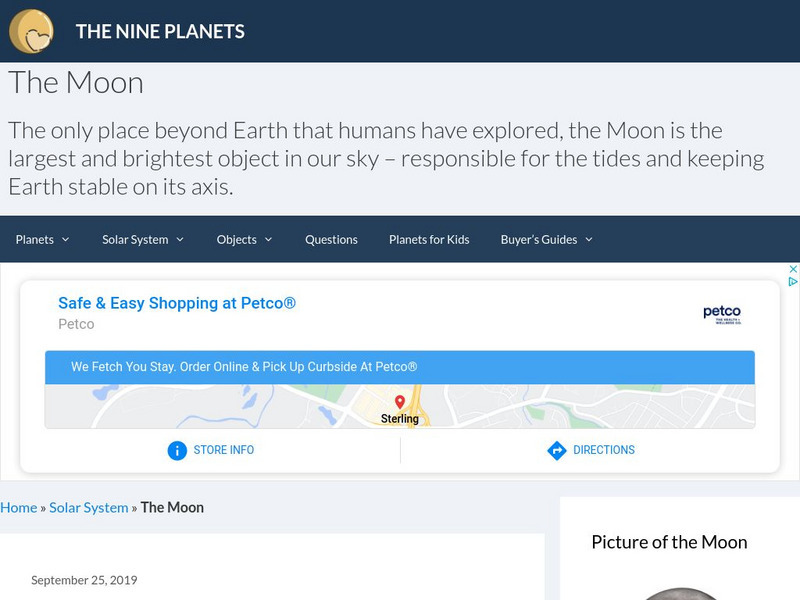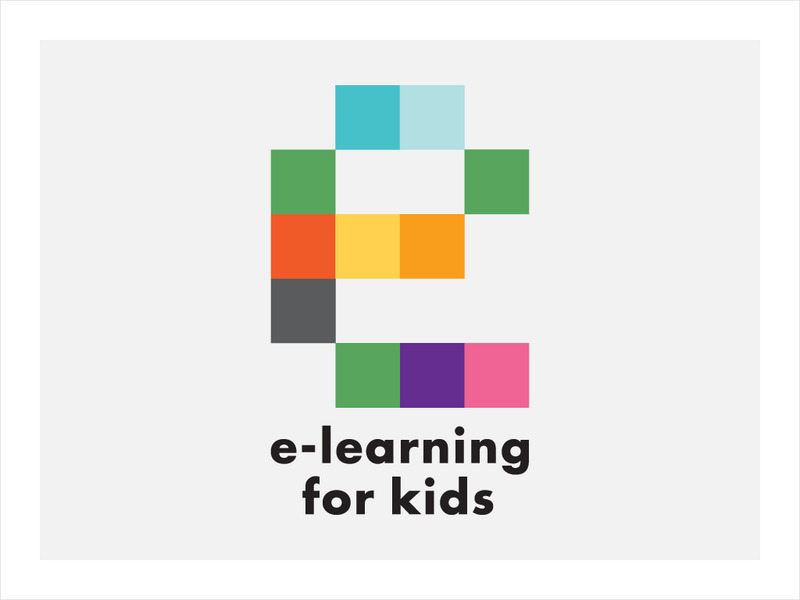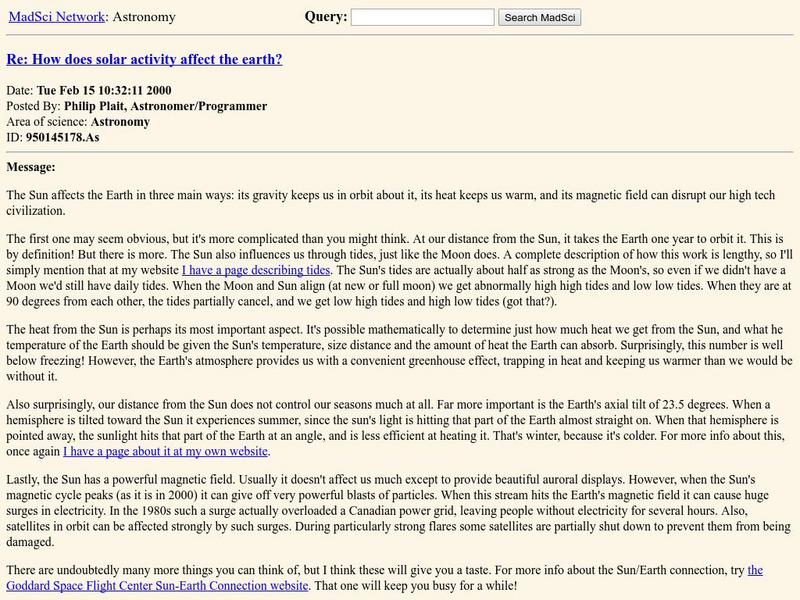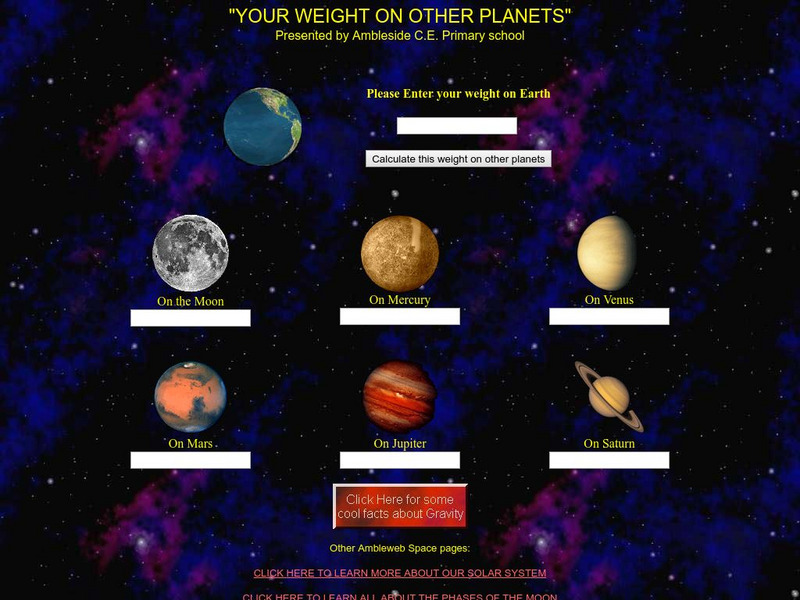Nine Planets
The Nine Planets: The Moon
Explore the mythology, structure, observational history, gravitational force, and orbit of Earth's Moon.
PBS
Pbs Learning Media: Why Doesn't the Moon Fall Down?
In this animated video segment adapted from NASA, astronomer Doris Daou explains how the forces of speed and gravity keep the moon in a constant orbit around Earth. [1:36]
E-learning for Kids
E Learning for Kids: Antarctica Penguins: How Does the Moon Influence the Tide?
This lesson explains how the moon affects tides on Earth and about the different types of tides.
MadSci Network
Mad Scientist: Why High Tide Away From the Moon or Sun?
An excellent and thorough answer to the often asked question about high tide "bulges" on the side of Earth facing away from the Moon or Sun.
Texas Education Agency
Texas Gateway: Newton's Universal Law of Gravitation
By the end of this section, you will be able to explain Earth's gravitational force, describe the gravitational effect of the Moon on Earth, discuss weightlessness in space, and understand the Cavendish experiment.
OpenStax
Open Stax: Newton's Universal Law of Gravitation
In the following interactive students will explain Earth's gravitational force and describe the gravitational effect of the Moon on Earth. They will discuss weightlessness in space and examine the Cavendish experiment.
University of Colorado
University of Colorado: Ph Et Interactive Simulations: Gravity and Orbits
An interactive simulation that teaches about gravitational force, circular motion, and astronomy by manipulating the sun, earth, moon, and a space station to observe the effects of gravity and orbital paths. This simulation can either be...
University of Colorado
University of Colorado: Ph Et Interactive Simulations: Gravity and Orbits
Move the sun, earth, moon, and space station to see how it affects their gravitational forces and orbital paths. Visualize the sizes and distances between different heavenly bodies, and turn off gravity to see what would happen without it.
Ambleside Church of England Primary School
Ambleside c.e. Primary School: Your Weight on Other Planets
Students enter their weight here on Earth, and find out how much they would weigh on the moon and other planets.
Enchanted Learning
Enchanted Learning: Earth's Oceans Tides
This site explains what tides are and the difference between Proxigean Spring Tides, spring tides, and neap tides, and how these are formed. Graphic illustrations are provided.
Physics Classroom
The Physics Classroom: Cavendish and the Value of G
A short description of how Cavendish measured the value of G - the universal gravitation constant and supported Newton's theory. Illustrated.









